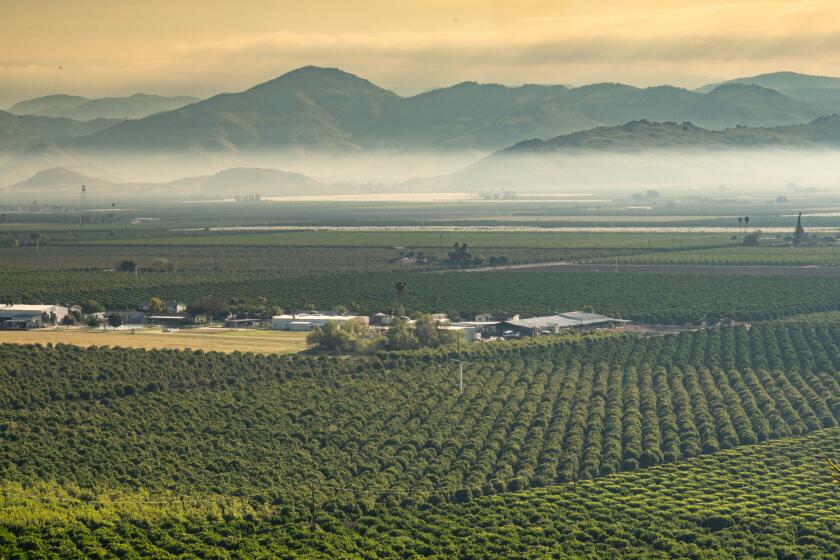To the editor: Ian James’ and Sean Greene’s recent reporting on California’s disappearing groundwater is essential reading (“Humanity is rapidly depleting water and much of the world is getting drier,” Sept. 3). It also echoes the trajectory we’ve witnessed in Iran, where the same “conquer the desert” mindset — deep wells, dams and aqueducts — pushed the country into what experts now call water bankruptcy.
Iran’s water management has a lot in common with California’s, but Iran refused to course-correct even as aquifers collapsed, rivers and wetlands dried up, and millions were displaced. Water became a political weapon in the hands of unaccountable elites, with devastating human consequences.
California is not Iran. It has the advantage of democratic institutions, a free press and civic activism. But the structural challenge is the same: powerful agricultural interests demanding more water than nature can provide. Unless California treats recharge and sustainable use as urgent priorities, it risks repeating Iran’s mistake — becoming a global warning rather than a model.
Nik Kowsar and Alireza Nader, Washington, D.C.
..
To the editor: This is a great article to have on the Sunday front page. Just as I think I have heard about all the possible consequences of climate change, a possible new one pops up. I am reminded of one of Donald Rumsfeld’s quotes: “There are … unknown unknowns, the ones we don’t know we don’t know.”
This is one of the frightening aspects of climate change. We think we know what will happen — more extreme weather, ocean acidification, more and larger fires, etc. Now, as I learned from this well-written article, the world is losing fresh water and it may not come back. The plausible reasons given are “rising temperatures unleashed by using oil and gas, and widespread overpumping of water.” This is just another good reason to wake up and take swift action to reduce the amount of greenhouse gases in our atmosphere. What else do we not know about the effects of climate change?
Larry Kramer, San Juan Capistrano
..
To the editor: While the warnings of disappearing fresh water are valid and prescient, it’s important to note that there is no shortage of water on Earth. However, there is a shortage of cheap, easily accessible water. The Earth’s surface is about 70% water-covered and we know how to desalinate the seas and oceans.
As conditions continue to worsen and water becomes more and more valuable, I have no doubt that mankind will turn to whatever is necessary to sustain life. Will there be misery before that happens? Undoubtedly, but it’s in our nature to put off until tomorrow what we should be doing today.
Ron Garber, Duarte
This story originally appeared in Los Angeles Times.









